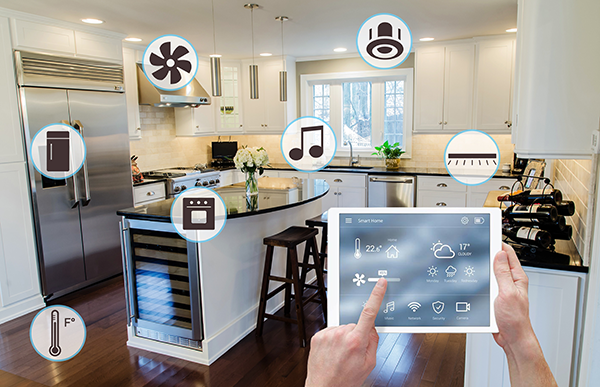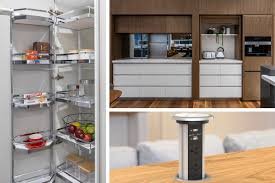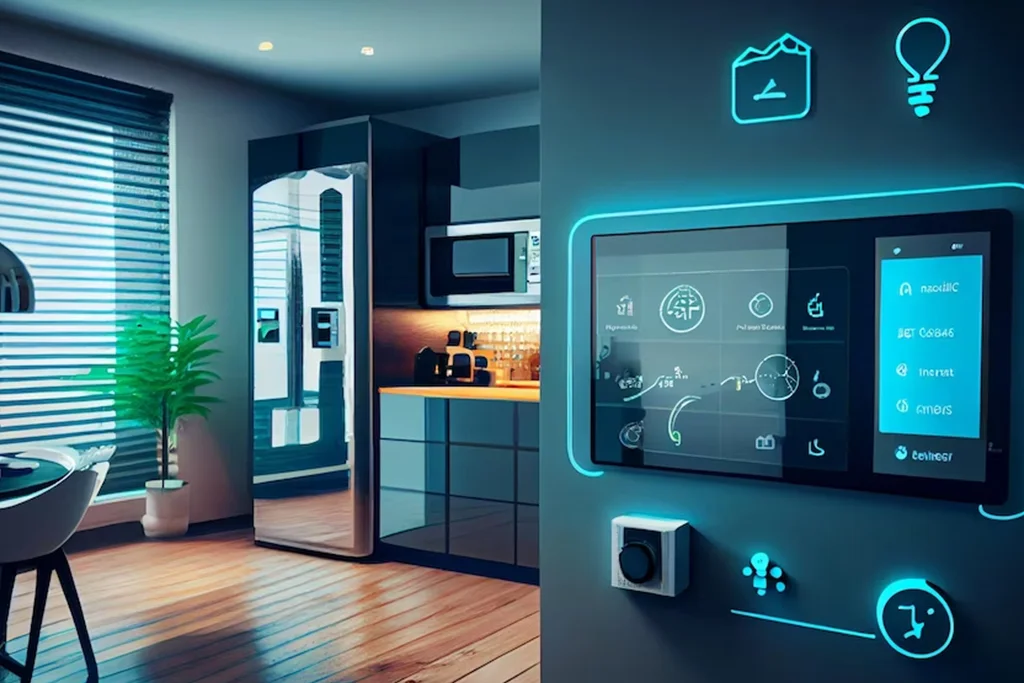Features to Look for in a Smart Kitchen Trash Can

A smart kitchen trash can is more than just a receptacle for waste; it’s a technologically advanced device designed to enhance convenience, hygiene, and efficiency in managing kitchen waste.
With various features that go beyond traditional trash cans, these smart devices can transform your kitchen experience. Here’s a comprehensive guide to the key features to look for when choosing a smart kitchen trash can.
1. Touchless Operation
Let’s Explore Touchless Operations.
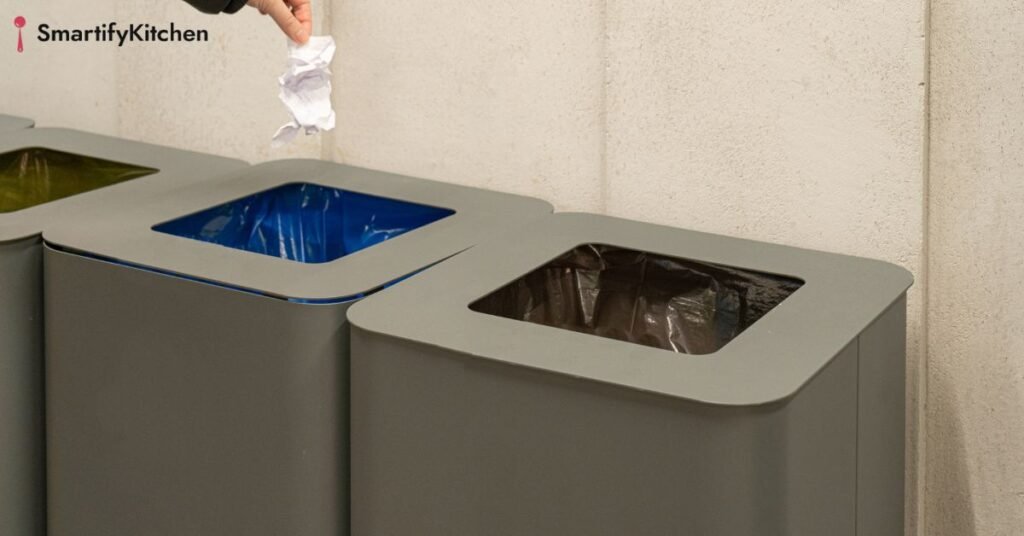
Benefits
- Hands-Free Convenience: Allows you to dispose of waste without touching the lid, which is especially useful when your hands are dirty or full.
- Improved Hygiene: Minimizes contact with the trash can, reducing the spread of germs and bacteria.
Key Considerations
- Sensor Range and Accuracy: Ensure the sensor detects motion reliably and opens the lid at the right time.
- Battery Life: Look for models with long-lasting batteries or rechargeable options to avoid frequent replacements.
2. Odor Control
Let’s Review Odor Control.
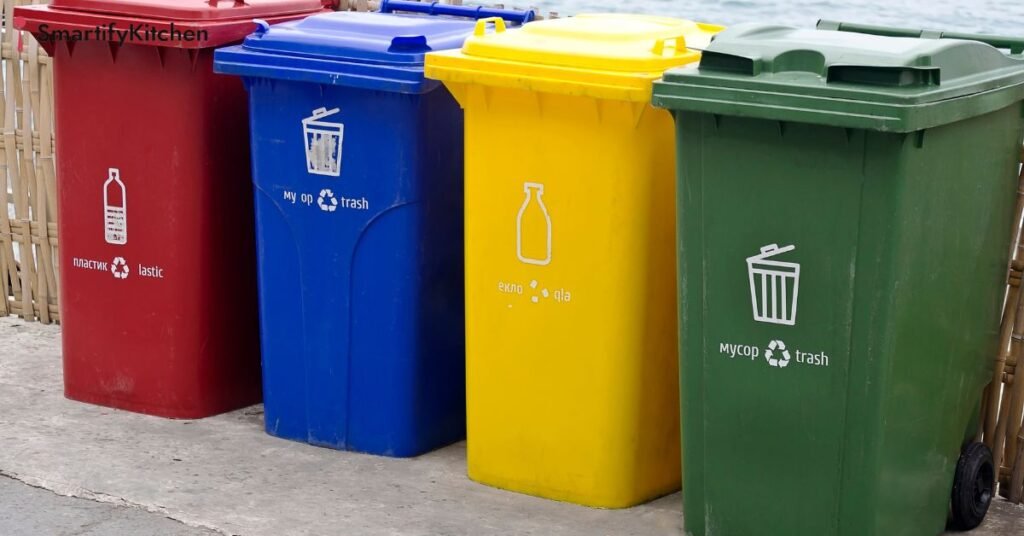
Benefits
- Freshness: Helps contain and neutralize unpleasant smells, keeping your kitchen smelling clean and fresh.
- Comfort: Reduces the impact of food waste odors on your kitchen environment.
Key Considerations
- Activated Carbon Filters: Many smart trash cans use activated carbon filters to absorb and neutralize odors.
- Sealing Mechanisms: Check for tight-sealing lids or specialized designs that trap odors inside.
3. Smart Notifications and Alerts
lets Review Smart Notifications and Alerts.
Benefits
- Efficient Management: Provides real-time updates on the status of the trash can, such as when it’s full or needs to be emptied.
- Convenience: Helps you stay informed about waste levels without having to manually check the trash can.
Key Considerations
- Connectivity: Ensure the trash can connects to your smartphone or smart home system for notifications.
- App Integration: Look for models with user-friendly apps that provide clear notifications and settings management.
4. Hands-Free Lid Opening
Let’s Explore Hands-Free Lid Opening.
Benefits
- Ease of Use: The lid opens automatically when you approach or when the sensor detects motion, making disposal quicker and easier.
- Reduced Effort: Eliminates the need to manually lift or touch the lid, which is particularly helpful when dealing with large or messy items.
Key Considerations
- Sensor Sensitivity: Evaluate the sensitivity of the motion sensor to ensure reliable operation.
- Lid Operation: Check for smooth and quiet lid movement to avoid disruptions in the kitchen.
5. Built-In Trash Compactor
Let’s Review the Built-In Trash Compactor.
Benefits
- Space Efficiency: Compresses waste to increase the trash can’s capacity, allowing you to use fewer bags and reduce the frequency of emptying.
- Reduced Waste: Helps manage and contain waste more effectively, making it easier to handle and dispose of.
Key Considerations
- Compaction Mechanism: Ensure the compaction feature is robust and effectively compresses waste.
- Ease of Operation: Look for user-friendly compaction controls and easy maintenance.
6. Durable and Easy-to-Clean Materials
Let’s Explore Durable and Easy-to-Clean Materials.
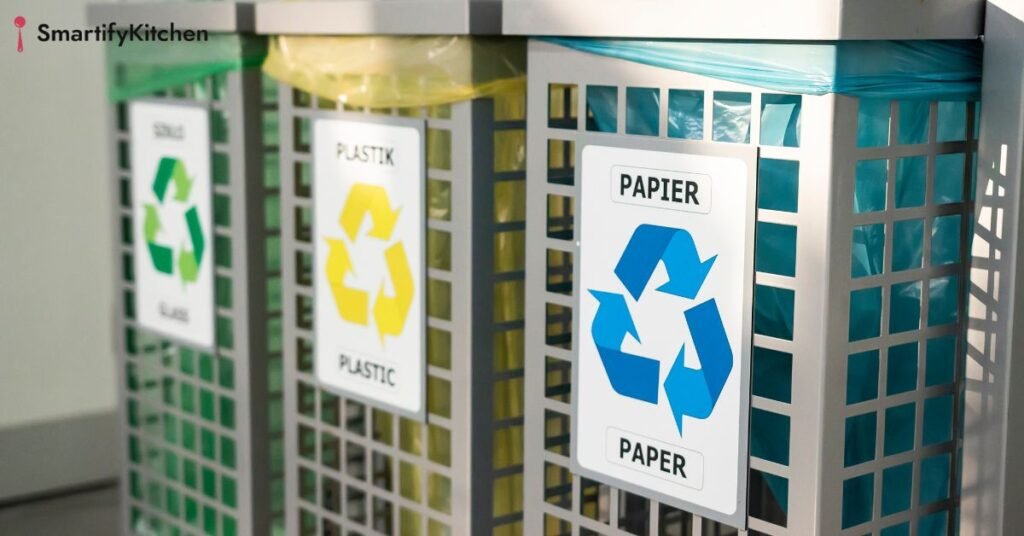
Benefits
- Longevity: High-quality materials ensure that the trash can withstands daily use and remains in good condition over time.
- Hygiene: Smooth, non-porous surfaces are easier to clean and prevent the build-up of grime and odors.
Key Considerations
- Material Type: Opt for materials such as stainless steel or high-grade plastic that are resistant to stains and odors.
- Cleaning Features: Look for models with removable liners or easy-to-wipe surfaces for straightforward cleaning.
7. Built-In Recycling Features
let’s Explore Built-In Recycling Features.
Benefits
- Environmental Impact: Facilitates the separation of recyclables from regular waste, promoting better recycling practices and reducing environmental impact.
- Organization: Helps you manage different types of waste more efficiently and reduce landfill contributions.
Key Considerations
- Separate Compartments: Choose trash cans with dedicated compartments for recyclables, compost, and general waste.
- Clear Labeling: Ensure compartments are clearly labeled to facilitate correct waste sorting.
8. Capacity and Size
Let’s Review the Capacity and Size.
Benefits
- Fit for Purpose: Ensures the trash can meets your household’s needs without requiring constant emptying or being too bulky.
- Space Efficiency: Select a size that fits comfortably in your kitchen without being obtrusive.
Key Considerations
- Volume: Assess the trash can’s capacity relative to your household’s waste generation to ensure it can handle your needs.
- Dimensions: Measure your available kitchen space to ensure the trash can fits well and does not obstruct movement.
9. User-Friendly Controls
Let’s Review User-Friendly Controls.
Benefits
- Ease of Operation: Simple and intuitive controls make it easy to use and adjust settings.
- Customization: Allows you to personalize the trash can’s features according to your preferences and needs.
Key Considerations
- Control Panel: Look for a well-designed control panel with clearly labeled buttons or a touchscreen interface.
- App Functionality: Ensure the accompanying app, if available, is easy to navigate and offers necessary features.
10. Energy Efficiency
Let’s Review the Energy Efficiency.
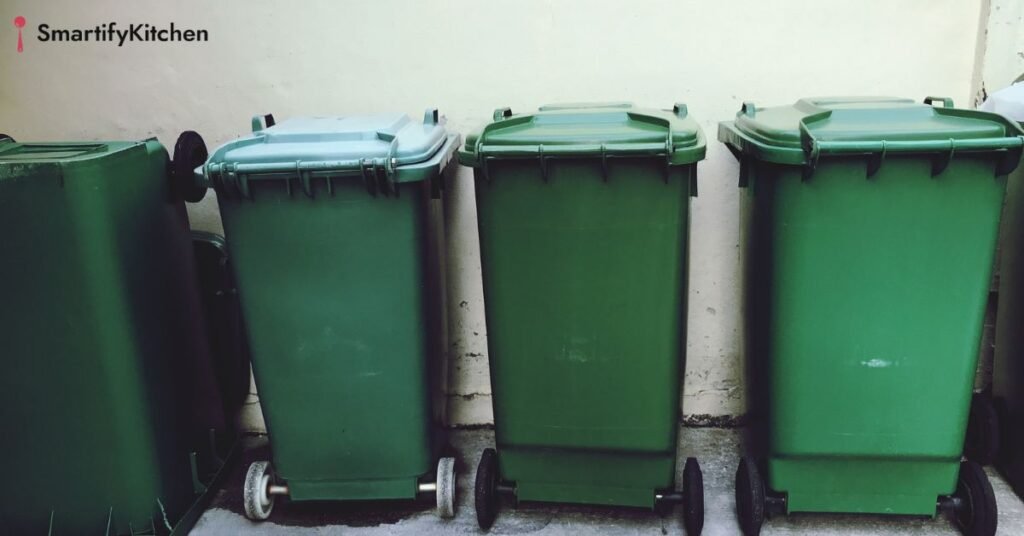
Benefits
- Cost Savings: Energy-efficient models consume less power, reducing electricity costs and contributing to a more sustainable home.
- Environmental Impact: Lower energy consumption helps reduce your overall environmental footprint.
Key Considerations
- Power Source: Choose models with low energy consumption or rechargeable batteries to minimize power usage.
- Energy Ratings: Look for appliances with energy-saving certifications or ratings.
11. Smart Integration
Now Let’s Explore Smart Integration.
Benefits
- Automation: Allows you to integrate the trash can with other smart home devices for enhanced functionality.
- Convenience: Streamlines waste management by coordinating with other devices in your smart home ecosystem.
Key Considerations
- Compatibility: Ensure the trash can is compatible with your existing smart home system or virtual assistant.
- Integration Features: Look for models that offer seamless integration with other smart devices, such as voice assistants or home automation systems.
Troubleshooting Common Issues
Let’s review some common troubleshooting issues that you might face.
Connectivity Problems
Check Wi-Fi Signal: Ensure that the trash can has a stable Wi-Fi connection to receive notifications and updates.
App Updates: Keep the app and device firmware up-to-date to address any connectivity issues and access new features.
Sensor Accuracy
Verify Calibration: If sensors are providing inaccurate readings, recalibrate them according to the manufacturer’s instructions.
Clean Sensors: Regularly clean sensors to remove any dust or debris that may affect their performance.
Maintenance and Repairs
Follow Maintenance Guidelines: Adhere to the manufacturer’s maintenance recommendations to prevent issues and ensure the longevity of your trash can.
Seek Support: Contact customer support for troubleshooting assistance or repairs if you encounter persistent issues.
Future Trends in Smart Kitchen Trash Cans
Let’s Discuss Future Trends in Smart Kitchen Trash Cans.
Advanced Sensor Technology
Enhanced Accuracy: Future smart trash cans may incorporate more advanced sensors for precise monitoring of waste levels and environmental conditions.
Integration with AI: Artificial intelligence may offer predictive analytics for waste management and optimization of trash can features.
Sustainable Design
Eco-Friendly Materials: Expect more smart trash cans to be made from sustainable and recyclable materials to reduce environmental impact.
Energy Efficiency: Future models may focus on further improving energy efficiency and reducing power consumption.
Increased Functionality
Multi-Functionality: New designs may include additional features such as composting options or integrated waste sorting systems for enhanced sustainability.
Smart Integration: Expect improved integration with broader smart home systems, offering more seamless control and automation options.
Read More about : Smart Kitchen Scales for Portion Control
Conclusion
Choosing the right smart kitchen trash can involves evaluating a range of features designed to enhance convenience, hygiene, and efficiency.
By considering aspects such as touchless operation, odor control, smart notifications, and durability, you can select a trash can that meets your needs and fits seamlessly into your kitchen.
Embracing the advanced technology of smart trash cans can streamline your waste management routine, improve kitchen cleanliness, and contribute to a more sustainable lifestyle.

